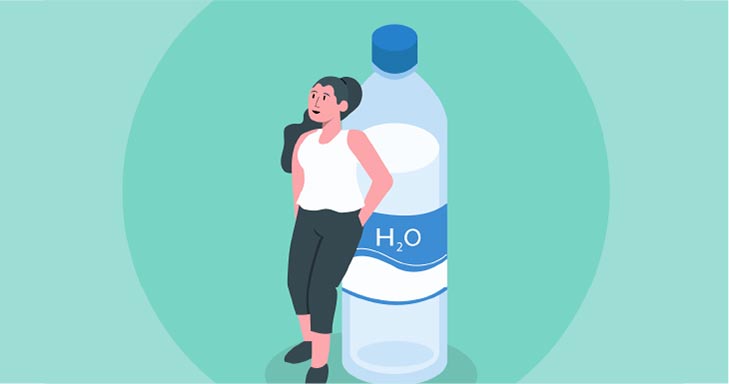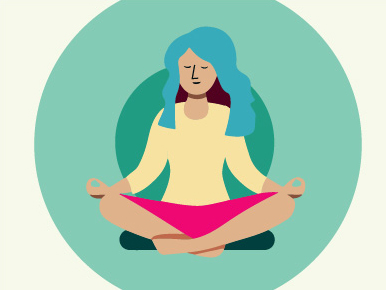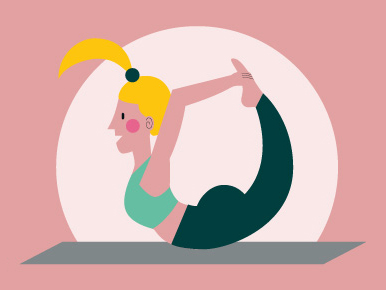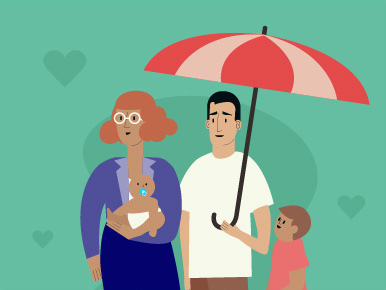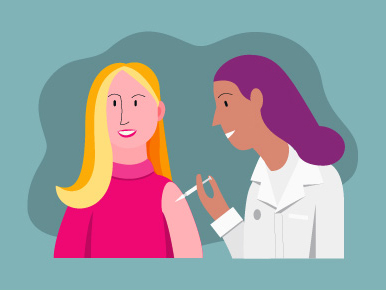Drinking water is one of the easiest and best things we can do to be healthy. And yet, many Kiwis are not meeting their daily recommended water intake(1).
So, how much is enough or too much? Here are some expert tips and insights for staying hydrated all year round.
Eight cups a day? Don't get hung up on it
You may have heard that 8 cups a day (or 2 litres) is the recommended daily water intake.
It may sound like a good rule of thumb, but there's also plenty of other factors to consider, like physical activity, body weight, and age. Plus, it's not just about the water we drink: as HealthNavigator.org.nz explains(2), we get about 20% of our water intake from food too.
That said, as a rough guide, adults should aim for 6–8 cups (1.5–2 litres) of fluid, including drinks like coffee, milk, and tea – whereas for children 4–6 cups (1–1.5 litres) are likely to be enough.
Signs that you're not drinking enough water
The first key step toward full hydration is listening to what your body is trying to tell you. According to a handy infographic by life insurer AIA(3), among the common symptoms of dehydration are fatigue, dry mouth, dizziness, headache, dark urine, and of course, thirst.
Generally speaking, our bodies are about 50–80% water, and we start to feel physically thirsty when we've lost 2–3% of our body's water levels.
Signs that you've drunk too much of it
Yes, you've heard it right: there can be too much of a good thing. Drinking too much water can lead to overhydration, also known as water intoxication or 'hyponatremia'. And again, listening to your body is key: you may get muscle cramps, weakness, nausea, swelling in hands, feet and lips, and other not-so-pleasant symptoms(4).
The benefits of drinking water
If you get the balance right – not too much, not too little – drinking water can benefit you in a number of ways. Key benefits include:
- Higher energy levels;
- Flushing toxins;
- Improved skin complexion;
- Lubricated eyes and joints;
- Body temperature is regulated;
- Weight loss;
- Better digestion;
- Better mood.
Plus, as insurer Fidelity Life points out(5), drinking enough fluid every day is a crucial part of kidney health, and that's even more important during warmer months if you're working or exercising in the sun.
Like to change your water-drinking habits?
When life gets busy, it can be difficult to get through even one bottle of water throughout the day. So, if you'd like to make a habit of drinking more H2O, here are some tips:
- Make a point of drinking a glass of water first thing in the morning (others also recommend drinking water before every meal);
- Keep a cup or water bottle on your desk at work, and take several tips each hour;
- Add a little flavour with a slice of lemon (or cucumber), or with sparkling water.
For an extra reminder, you may even consider using a water tracker app on your phone; there are many to choose from.
We're in your corner
At LifeDirect, we care about Kiwis' overall health, and health insurance can help you protect both your physical and financial wellbeing.
Like to find something appropriate for you? Our quote compare tool is a great place to start. But we're also here to answer your questions and help you explore your options. Give our friendly LifeDirect advisers a call on 0800 800 400 or message us here.
- (1) Independent survey commissioned by Sodastream
- (3) AIA.co.nz – What happens to our bodies when we don't drink enoughwater?
- (4) NZHerald.co.nz – How a woman overdosed on water
- (5) Fidelitylife.co.nz – Keeping your kidneys healthy
Disclaimer: Please note that the content provided in this article is intended as an overview and as general information only. While care is taken to ensure accuracy and reliability, the information provided is subject to continuous change and may not reflect current developments or address your situation. Before making any decisions based on the information provided in this article, please use your discretion and seek independent guidance.

